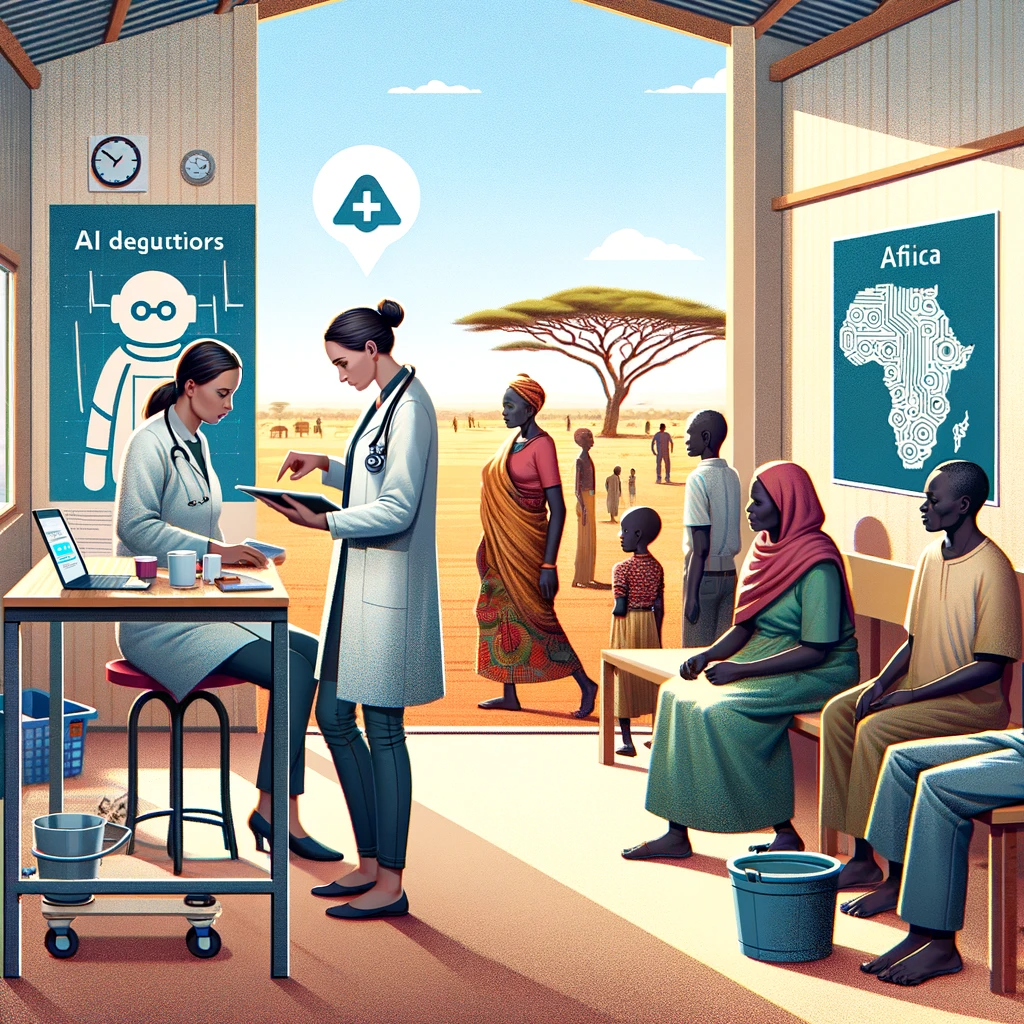Introduction
Artificial intelligence (AI) is playing a transformative role in the healthcare landscape, particularly in Africa. With its ability to enhance connectivity, facilitate the flow of health information, and provide healthcare services, AI has the potential to address some of the challenges faced by the African healthcare system. However, the regulatory landscape surrounding AI in healthcare in Africa is still evolving. But AI is revolutionizing Healthcare in Africa.
One of the key advantages of AI in healthcare is its ability to overcome the shortage of healthcare resources. Africa faces a scarcity of healthcare professionals, especially in rural areas. AI-powered technologies can bridge this gap by providing virtual consultations, medical advice, and appointment booking through mobile applications. For example, Rwanda and Tanzania have launched digital health services that offer medical advice, appointment booking, and prescription delivery through AI-powered triage systems and mobile applications.
AI’s Presence in the African Healthcare Landscape
AI has also been utilized in clinical practice in certain African countries. South Africa, for instance, used an AI-driven chest x-ray diagnosis application during the COVID-19 pandemic. This technology helped healthcare professionals quickly and accurately diagnose COVID-19 cases, enabling timely treatment and containment measures. Such applications of AI have the potential to transform healthcare delivery in Africa, improving patient outcomes and reducing the burden on healthcare systems.
Institutional Responses to Regulatory Frameworks of AI
However, the regulatory framework for AI in healthcare in Africa is still in its infancy. Currently, there are no specific AI regulatory instruments at a regional African level or in any of the 12 African countries under investigation. Instead, AI adoption is informed by issue-specific legislation, such as healthcare laws, and sector-specific legislation, such as data protection laws. These regulations cover areas like digital health law, data protection law, consumer protection law, and intellectual property law.
Efforts are being made at both regional and subregional levels to develop regulatory guidance for the use of AI in healthcare. The World Health Organization has implemented the African Health Observatory initiative, which aims to provide an informative digital health platform. The African Union, through the African Medical Devices Forum, is also working towards providing regulatory guidance for the use of AI in clinical healthcare and research. Moreover, subregional groups like the Intergovernmental Authority on Development (IGAD) are integrating cross-border health data sharing to facilitate AI development and healthcare in Africa. Indeed these efforts reflect AI revolutionizing healthcare in Africa.
Conclusion
Despite these initiatives, challenges remain. Many African countries lack comprehensive frameworks that provide guidance for digital healthcare modalities and applications. Implementation and monitoring processes for digital health are sporadic due to a lack of infrastructure and resources.




